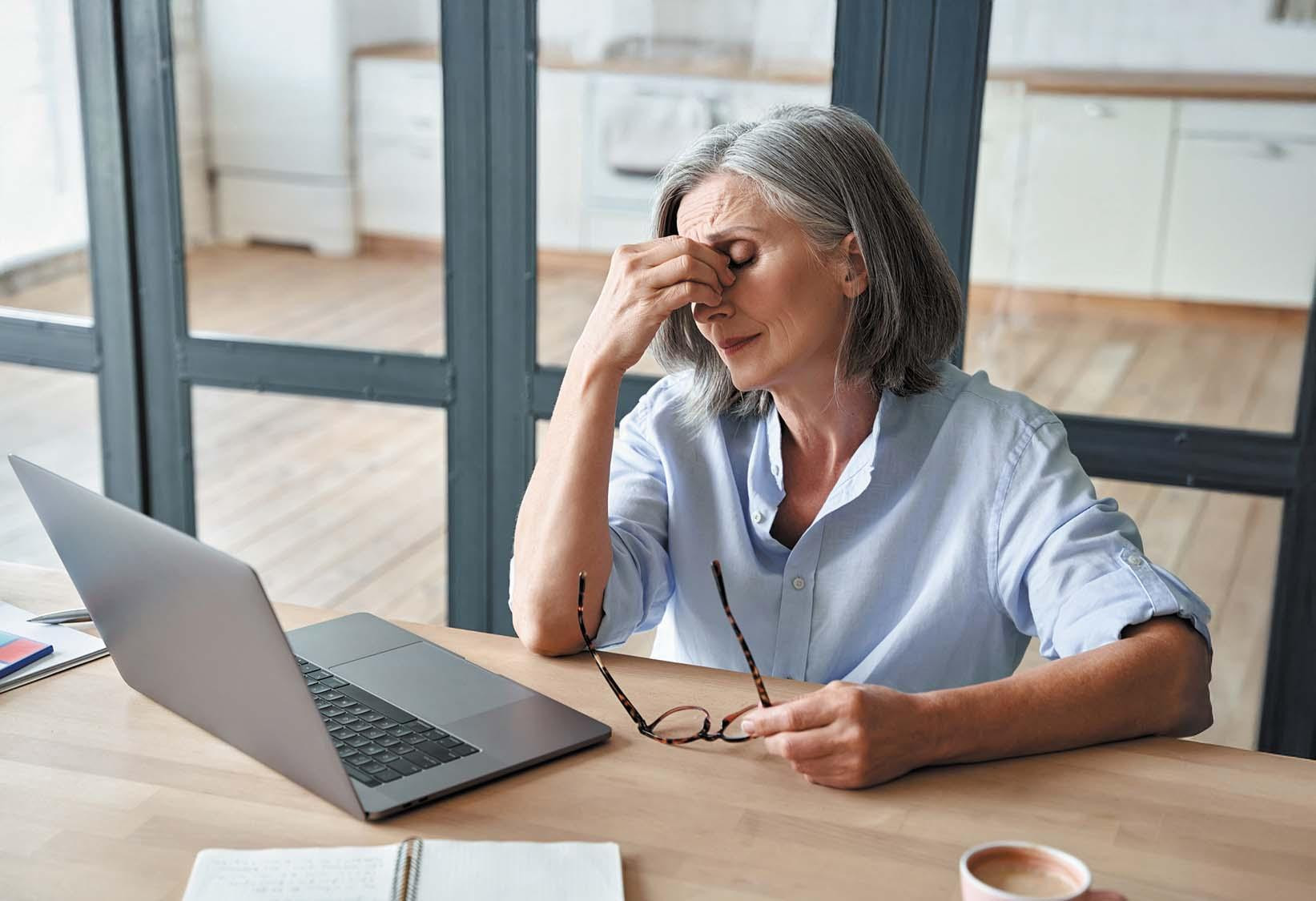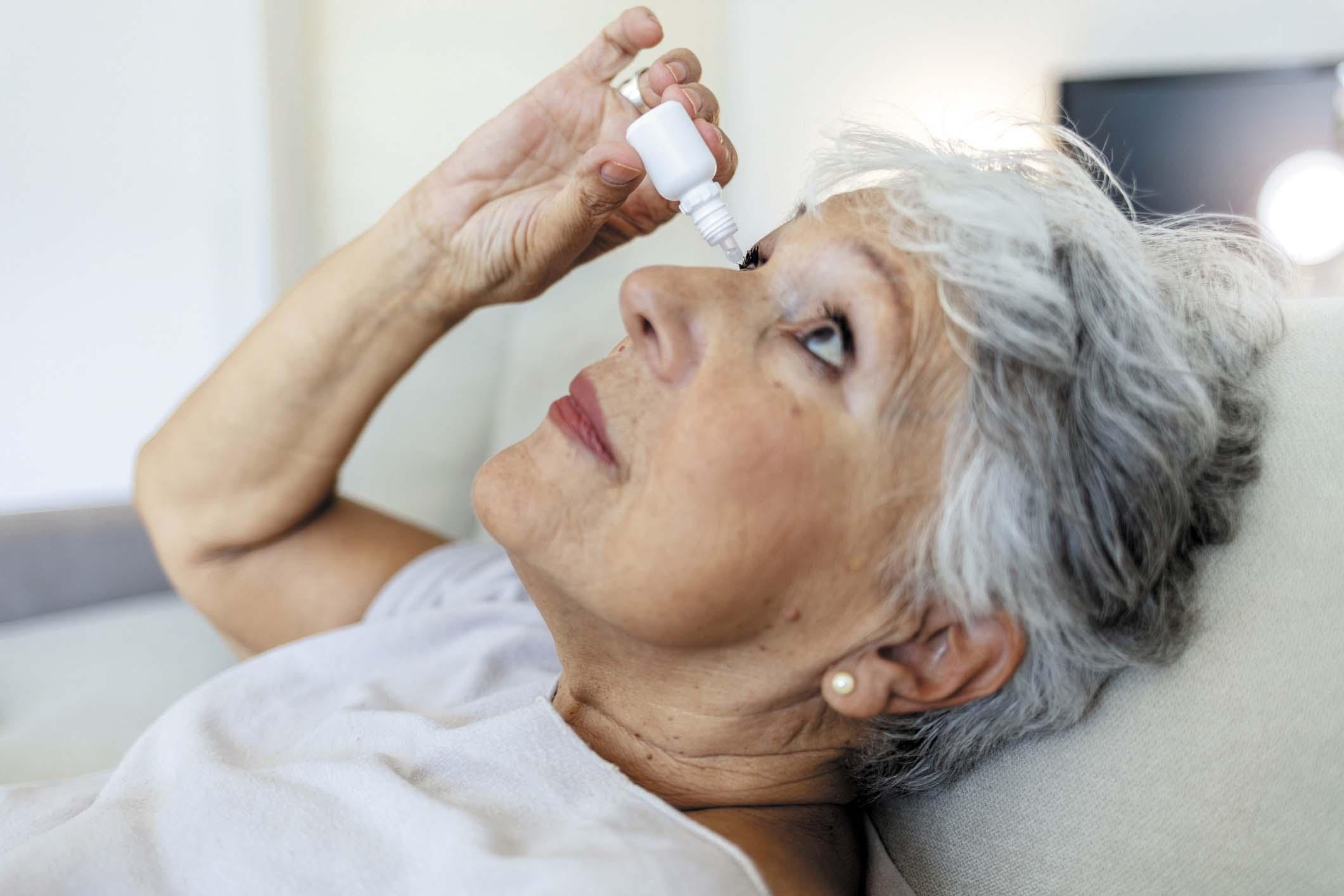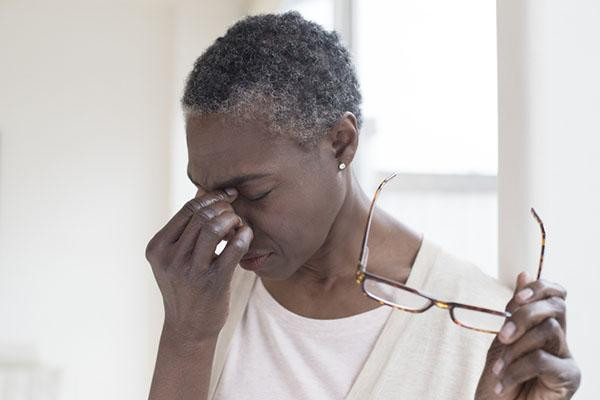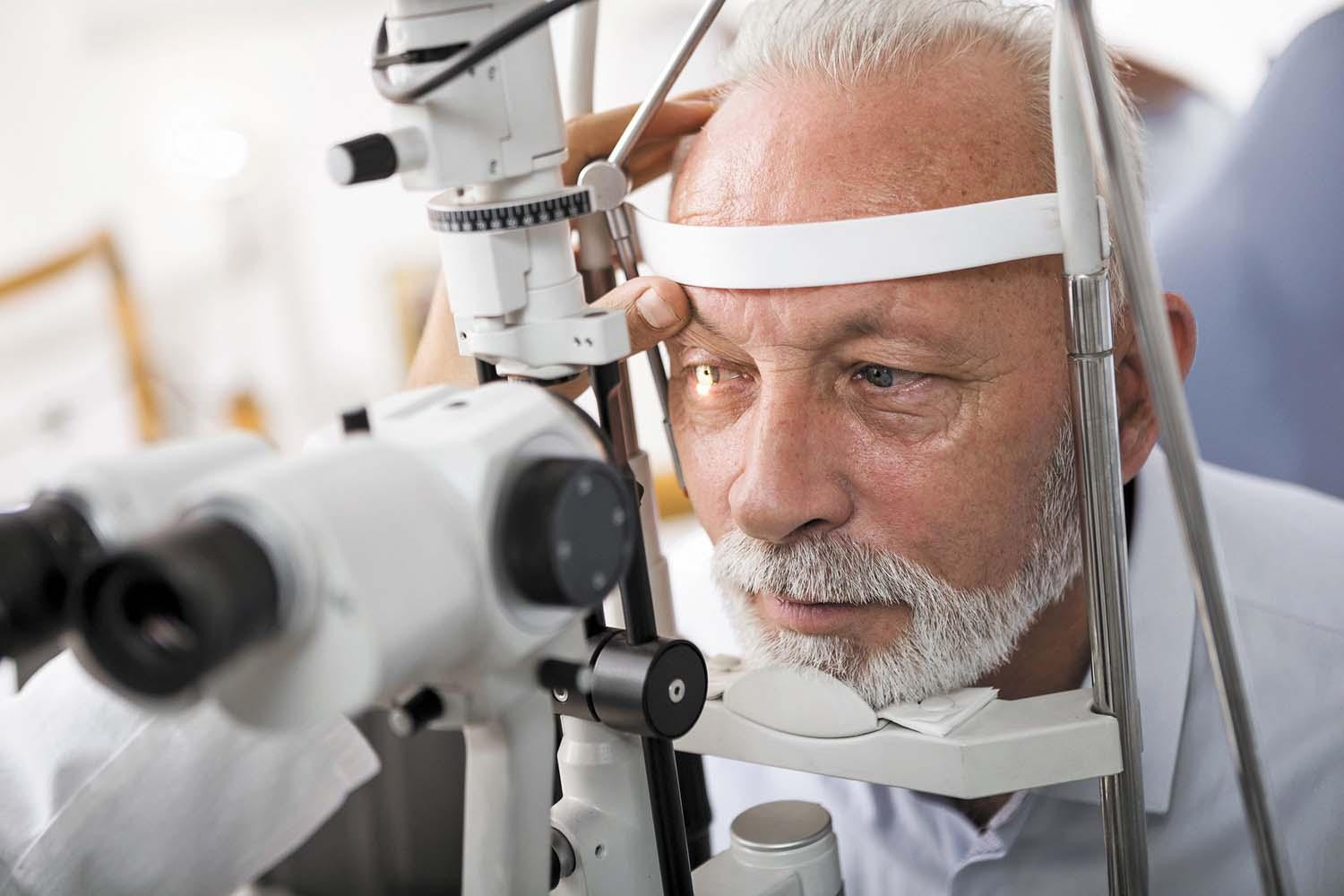
What are somatic workouts?

How to curb your stress eating

How to spot Parkinson’s disease symptoms

8 simple ways to reduce ultra-processed foods in your diet

Heart failure symptoms in women: How they’re different

GERD diet: Foods to avoid to reduce acid reflux

Strong is the new skinny

Everyday habits that sneakily weaken your bones

Don’t wait to get help for back pain

Correcting how you walk may ease osteoarthritis knee pain
Eye Health Archive
Articles
What can I do about poor night vision?
Poor night vision could be caused by an outdated eyeglass prescription or an eye condition, such as dry eye, cataracts, or age-related macular degeneration. People should see an eye care specialist for a complete eye exam to check for these issues.
Effective tips for reducing eye strain
Many activities, such as reading small print or doing needlework, contribute to eye strain. To avoid or reduce eye strain, it helps to keep eye surfaces moist and take breaks when doing anything that requires focused close-up vision.
Can eye drops restore your close-up vision?
Prescription eye drops, such as pilocarpine hydrochloride (Vuity, Qlosi) and aceclidine (VIZZ), can ease blurry close-up vision that occurs in middle and older age. The eye drops temporarily shrink the eye’s pupil, which focuses light and makes near vision sharper. The eye drops are considered generally safe to use daily or occasionally, depending on preference. However, they can have side effects, such as dim vision and headaches. In rare cases, they might cause retinal problems.
Pickleball-related eye injuries increasing
As the number of pickleball players has grown, so has the number of eye injuries in people ages 50 or older, according to a 2025 study. Such injuries include damage to the eye surface, retinal detachment, or fractures near the eye socket.
Coping with dry eyes
Dry eye disease is broken down into two types: In aqueous-deficient dry eye, the eyes don’t produce enough tears. In evaporative dry eye (sometimes called meibomian gland dysfunction) there are enough tears, but they’re unstable and evaporate too quickly. Dry eye symptoms include eyes that feel gritty, sandy, stinging, burning, scratchy, tired, or sensitive to light. People with symptoms often forgo seeing a doctor. Artificial tears are an effective starting point for many cases of dry eye.
What can I do about poor night vision?
Poor night vision could be caused by an outdated eyeglass prescription or an eye condition, such as dry eye, cataracts, or age-related macular degeneration. People should see an eye care specialist for a complete eye exam to check for these issues.
What are eye flashes and floaters and what can I do about them?
Flashes and floaters are eye problems that become common with age. Over time, they may become less noticeable, but people should seek medical care if symptoms worsen, as this could be a sign of a retinal detachment.
An emerging trend for cataract surgery
Same-day bilateral cataract surgery removes cataracts in both eyes in one surgical session, instead of two surgeries that are a few weeks apart. The approach has many benefits, such as convenience, but it has risks, too. Vision clarity might not be as good as it is when the procedures are done separately. Some doctors fear that vision loss (which is a low risk for any cataract surgery) could possibly occur in both eyes at the same time.

What are somatic workouts?

How to curb your stress eating

How to spot Parkinson’s disease symptoms

8 simple ways to reduce ultra-processed foods in your diet

Heart failure symptoms in women: How they’re different

GERD diet: Foods to avoid to reduce acid reflux

Strong is the new skinny

Everyday habits that sneakily weaken your bones

Don’t wait to get help for back pain

Correcting how you walk may ease osteoarthritis knee pain
Free Healthbeat Signup
Get the latest in health news delivered to your inbox!
Sign Up











